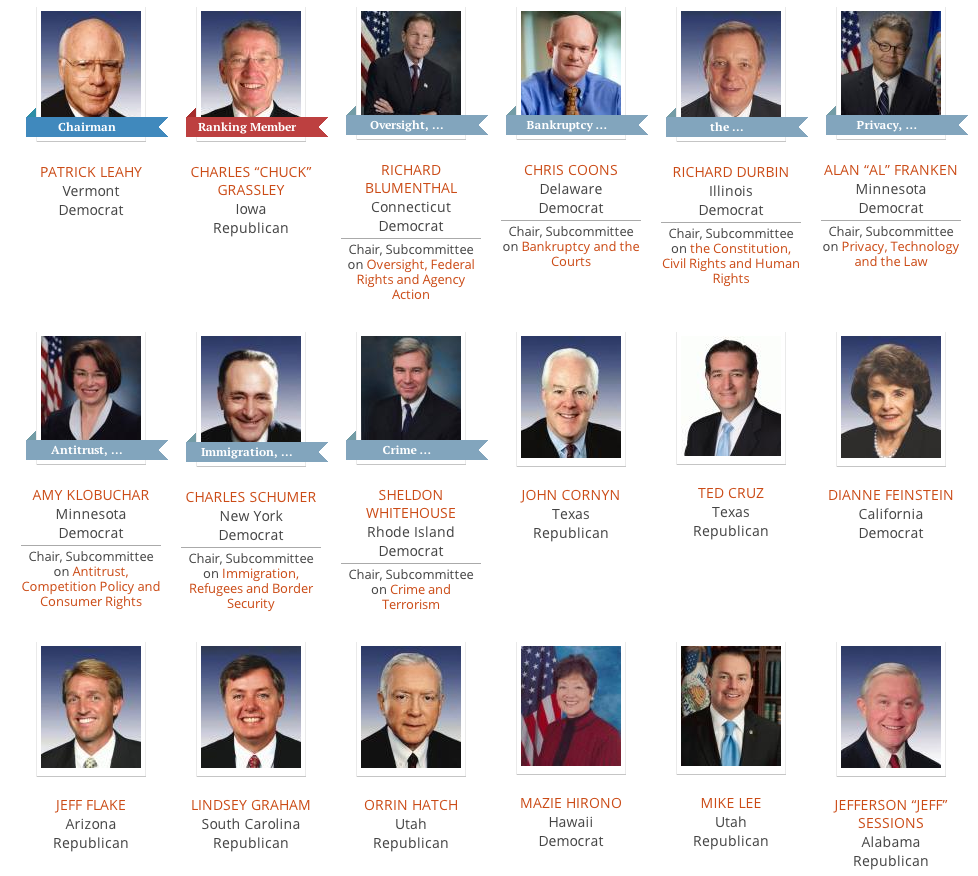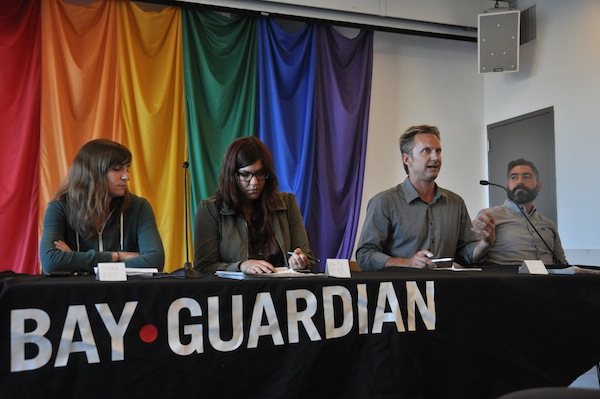Welcome to the first issue of The Weekly Illumination, a JTM newsletter offering a quick look at the week in journalism with a focus on what’s working in today’s news ecology. The Illumination is a curated collection of stories about journalism innovation, notable job opportunities, grants and updates about Journalism that Matters.
The newsletter is distributed to e-mail subscribers, through the JTM Google Group, and posted to the Illuminations blog. In this week’s Illumination we’ll explore the future of journalism education, social media and the effectiveness of paywalls.
Get Civilized, Online Comment Reform
In a previous column I wrote about how a San Francisco Alt-Weekly turned off its comments for a week. That experiment is now over and the sea of frothy comments has returned to the San Francisco Bay Guardian following its completion. In that column I spoke to how anonymous comments create an often-hostile environment where users show little restraint.
That phenomena is detailed in a new article by Mark Manson, a popular blogger and self-help author. In his essay, Manson points to four elements of online communication that warp our perception and drive people to act in ways they never would in person.
Next month the Huffington Post hopes to kick out the trolls — or at least coerce them into behaving — by eliminating anonymous comments, reports Gigaom.
“We need to evolve a platform to meet the needs of the grown-up internet,” said Arianna Huffington at Hubspot’s Inbound 2013 conference. “Trolls are just getting more and more aggressive and uglier and I just came from London where there are rape and death threats.”
Social Media Gets Stickier
Facebook and Twitter may already be ubiquitous on the internet, but their reach across the Web continues to grow. It’s been possible to embed individual tweets for a while, but now anyone can embed public Facebook posts as well. This means that stories can now include the posts themselves, which will increase the company’s visibility outside of Facebook’s domain.
The New York Times has launched a one-off experiment to identify excerpts that readers can automatically share on Twitter, reports Poynter. Throughout the article, Dave Itzkoff’s The God of ‘SNL’ Will See You Now, there are sentences marked by a subtle gray highlight and the familiar Twitter logo. When someone clicks on these highlighted sentences a tweet is automatically prepared with that text and a link to the article that users can share with their followers. Although the New York Times has no plans to roll out these Twitter highlights to more of its stories, the newspaper does have a redesign planned next year.
There is even an app that will turn on these Twitter highlights across the entire Web. When the plug-in is enabled, clicking on a sentence on any web page will turn it into a tweet automatically. It’s called Save Publishing, and although I haven’t had a chance to test out the software, which is still in alpha-testing, it does seem like an interesting idea.
***
It can be almost impossible to correct the record when a mistake is made on social media, especially Twittter. When tweets go viral, they become nearly impossible to track and follow up tweets to clarify or correct information never have the same reach. A new app called Retwact is working to find a solution, but the app developers are finding themselves hampered by Twitter’s policies, reports newslab.org.
***
More than 80% of the world isn’t on Facebook. For some of us that’s a personal decision, but for the millions of people around the world without internet access it just isn’t possible to take part in the virtual world that Mark Zuckerberg created. But on Wednesday the company announced its plans to bring the social network to the rest of the world by “drastically cutting the cost of delivering basic Internet services on mobile phones,” according to the New York Times.
“If we were just focused on making money, the first billion people that we’ve connected have way more money than the rest of the next six billion combined. It’s not fair but it’s the way that it is,” Zuckerberg told CNN in a story about internet.org, the initiative he formed in partnership with six other tech companies. “We just believe that everyone deserves to be connected and on the internet.”
Tear Down this Wall
While recent reports show that pay walls are working to generate more revenue for sites like The New York Times, The San Francisco Chronicle has decided to terminate its experiment of charging to access content online. Unlike the semi-permeable Times site, which permits users a limited number of articles they can read each month (and an unlimited amount if reached by search engine), the Chronicle created a new site at SFChronicle.com to house its original reporting.
Meanwhile the incredibly well-trafficked SFGate.com became populated almost exclusively with wire content and teasers to the stories behind the pay-wall. The experiment ended after four months, despite generating nearly half a million dollars, according to an interview with former editor Phil Bronstein.
The Future of Journalism Education
Although a new report shows that more than a quarter of recent journalism grads wish they’d studied something else in school, the same report shows that more graduates are landing full-time work after graduation. In 2009, only 56% of graduates found employment within eight months of graduating; that number is now at 66% for 2012 grads.
In recent years, many journalism schools have modeled themselves after teaching hospitals. Rather then spending time lecturing about the basic principles of journalism, more and more schools are having their students start reporting immediately. The faculty at these schools will often act as editors of online publications to create an environment similar to the traditional on-the-job training that introduced so many cub reporters to newspaper reporting.
But researchers David Ryfe and Donica Mensing of the University of Nevada’s Reynolds School of Journalism have authored a new paper that suggests journalism schools should instead adopt an entrepreneurial model for education, reports Nieman Lab. One example of an entrepreneurial model for education is Stanford’s D.school, a multi-disciplinary graduate program focused on using radical collaboration to tackle real problems. Corey Ford, the CEO of Matter.VC, used to teach at the d.school and is now employing a similar process to help launch media start-ups through his accelerator.
Entrepreneurship may offer the best chance for journalists — and journalism — to succeed, but for many students an internship can be a solid rung toward reaching a successful career. For DiAnelea Millar, who just wrapped up an internship at the Los Angeles Times, the experience gave her hope for the future. As she explains, her internship the previous summer at the Times-Picayune wasn’t quite as inspiring.
For anyone about to start a Fall internship, Alex Laughlin, the influence director for the University of Georgia’s Online News Association Student Group, has prepared a list of five things any intern can do to help make a good impression. Although Laughlin’s advice is mostly common sense, the post does a good job of emphasizing how important it is for interns to wow their new colleagues. After all, when dozens of people are jockeying for the same job those connections can lead to interviews that might not otherwise happen.
Job(s) of the Week
Each week, The Illumination will include links to jobs, grants and fellowship opportunities. If you are hiring or know someone who is, send me an e-mail and I’ll gladly list it here. If you’re looking for a job, let me know what kind of work you are looking for and I’ll try to post anything I come across that could be a good fit.
Meanwhile, if you happen to live around Morristown, New Jersey or are looking to move to the Garden State, the Aggregation Reporter is looking for an “Internet Sleuth with Journalism Background.” The job itself appears to be a typical general assignment position, but who wouldn’t want to see their employer print “Internet Sleuth” on a business card.
Hangout Sept. 12 to Discuss Future of JTM
For over a decade JTM has hosted unconferences around the country. We are now looking toward how we can grow as an organization.
Should we continue to focus on hosting physical gatherings? Should we move into online gatherings? Or should we take our energy and nonprofit status and launch a whole new initiative?
Please join us, Thursday Sept. 12 at 1PM Pacific Time (4PM Eastern) for a Hangout discussion on the future of JTM.
Coming Up: Disclosure
On Monday, the Illuminations blog will examine the topic of disclosure. Does transparency trump objectivity? What should journalists disclose and when is it not necessary?
If you have thoughts on this issue or any of the other topics covered in this issue of The Illumination then please feel free to leave a comment or to send me an e-mail.



 On Wednesday, the editorial leadership of the
On Wednesday, the editorial leadership of the 





